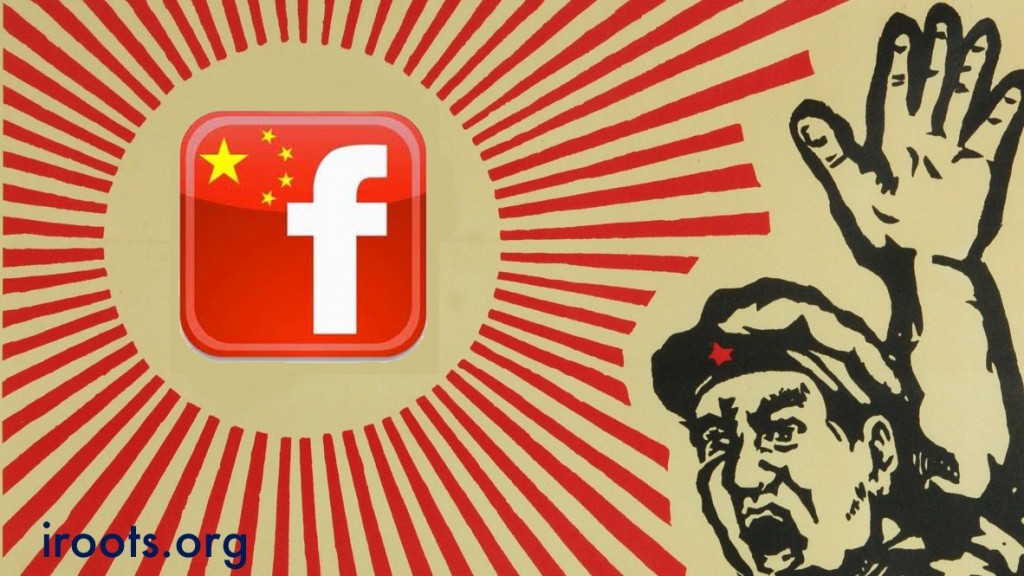Nationalize Facebook! Really?
Writing for Slate, Philip N. Howard has an article today calling for the nationalization of Facebook or at least a “thought experiment” on the subject. And, as far as I can tell, it’s not “Write a Joke Socialist Article Day.” Apparently, he’s serious. Check it out.
Over the last several years, Facebook has become a public good and an important social resource. But as a company, it is behaving badly, and long term, that may cost it: A spring survey found that almost half of Americans believe that Facebook will eventually fade away. Even the business side has been a bit of a disaster lately, with earnings lower than expected…If neither users nor investors can be confident in the company, it’s time we start discussing an idea that might seem crazy: nationalizing Facebook.
Whoa, whoa, wait a minute! First off, why is it automatically assumed that Facebook’s eventual demise is a bad thing? Is Facebook a poor lost puppy that needs to be given warm milk and medical intervention even though it’s suffering from head trauma and broken bones from being run over by a semi? What is it about freedom that the Left can never understand?
It’s called creative destruction and it’s a beautiful thing no matter how much it makes liberals squirm. If you think I’m just complaining about Democrats, think again. Republicans do their fair share of nanny state antics. Even the supposed Ayn Randian extraordinaire, Paul Ryan–he’s been voting for bailouts and his favorite forms of big government throughout his career.
Jim Fedako, over at mises.org writes, “Creative destruction (Joseph Schumpeter’s phrase) occurs when innovations — new technologies or business models — demolish the capital structures of well-established industries, industries that have lost the ability to satisfy the urgent wants of consumers.”
The eventual demise of Facebook will open the way for even more satisfying systems to take its place in the marketplace. I don’t know about you, but I look forward to that day! (If you want to go deeper into these principles, it’s essential to understand the concept of the tragedy of the commons also read Walter Block.)
The Slate article continues:
There are three very good reasons for (nationalizing Facebook) this drastic step: It could fix the company’s woeful privacy practices, allow the social network to fulfill its true potential for providing social good, and force it to put its valuable data to work on significant social problems.
Privacy, no doubt, is a concern, but let’s remember, you really can stop posting and suspend your account. It’s a voluntary system. And, while we’re on the subject of privacy, when did the government (the collective) become a trustworthy overlord of our private information? For once I agree with “Popehat.”
The notion that nationalizing Facebook would lead to GREATER privacy is supernaturally fatuous.slate.com/articles/techn…
— Popehat (@Popehat) August 16, 2012
In truth, the government is the biggest violator of privacy rights. Examples of government abuse of privacy extend as long as the tax code, itself. Taxes (and coercion) aside, the government even commits the same abuses it claims to want to protect us from. Lew Rockwell exposed this in another article from the Ludwig von Mises Institute:
…it is not surprising to discover that the federal government has used its own websites (to track visitors with cookies) doing the same thing. First, it came out that the National Drug Control Policy Office was dropping cookies onto its visitors’ hard drives, and using those cookies to track their web use. If you went to the White House site, and then looked at a site that came up from a search for “pot,” you would get a little message from the federal government telling you to stop using drugs. It is not only outrageously invasive; the practice violated the federal government’s own policy goals for private-sector sites.
(Read the full article.)
A comment by “AF” over at Slate also takes a good jab at the article,
Maybe the government should try creating its own competing social network providing a superior service and we will see which one the customers will pick.
It’s not really surprising that socialists think that the government should run Facebook. Once you think that one single organization filled with pencil pushers and bullies can manage an economy of 300 million people, sky is the limit.
The article ends with a real flourish,
Even though the benefits outweigh the risks (What benefits?), the idea of nationalizing Facebook is probably a nonstarter. At the very least, though, it is a great thought experiment…
Sadly, these thought experiments are becoming a reality in America at an alarming rate with recent actions of the government and the Federal Reserve.
Thankfully, there is a new intellectual curiosity growing on college campuses about true free market principles and something called Austrian economics. Inspired by a series of speeches given by a certain presidential candidate (with two first names), students are bucking the state-worshipping ideology of their professors.
If you are a college student, you won’t want to miss out on this intellectual revolution. Young Americans for Liberty is a great organization to join on your campus and if you don’t have one, it’s easy to start.
Not in college? Besides, being active in your own community groups, learn how you can assist these youngsters in your community. Get to know them, help them with their business ventures and host a few of their goofy parties. After all, they may end up in your basement anyway!
So, as the Collective, let’s put this to a simple majority vote:
[poll id=”11″]
One way you can help is by donating to send iroots.org’s media team to Tampa, FL to hold the Republican Party’s feet to the fire. Check out the project, here. Would you like to write for us? Send your contact info and submissions to irootsorg@gmail.com



THIS month we will be starting a non profit coop which combines social networking, a marketplace, credit union, crowd funding and crowd sourcing. We can all take part in creating a cultural and economic revolution. All types of independent creative and innovative people and small businesses will be able to easily sell their stuff in a social networking environment. Plus people will be able to make commissions through affiliate marketing of their favorite goods, services, and artists. There are other ways that people will make money as well. Membership will be free but we will have service fees which are less than competitors. The surplus the organization generates from the service fees and advertising will also go back into helping the membership through programs like education, fashion shows, concerts, grants, and gift cards for the most active members. Most of the programs will be sponsored, voted on, and organized by the members. Some programs we will pursue will be those which help all of humanity like bringing cheap renewable energy sources and housing to people, and empowering people worldwide to grow their own food and access to clean water. The technologies are already available, we just need a way to implement them, and this platform could be the key. Things will be very transparent and we will be needing people from across the world to get involved. As it grows it will create vibrant local communities which work well with our other local communities around the globe. That is the basic concept. Putting people and the planet over profits. We will start working smarter not harder.
Apparently you don’t know the definition of socialism or a free market and no concept of a non profit cooperative.
Working with each other, helping each other, working smarter not harder, building communities, embracing our own and each otherstalents, ideas, and passions plus making money and saving money. You call it one thing. That sounds ignorant. Not only will it be run democratically, it’s a website, YOU don’t have to join. Keep doing what you are doing, you sound like a winner.